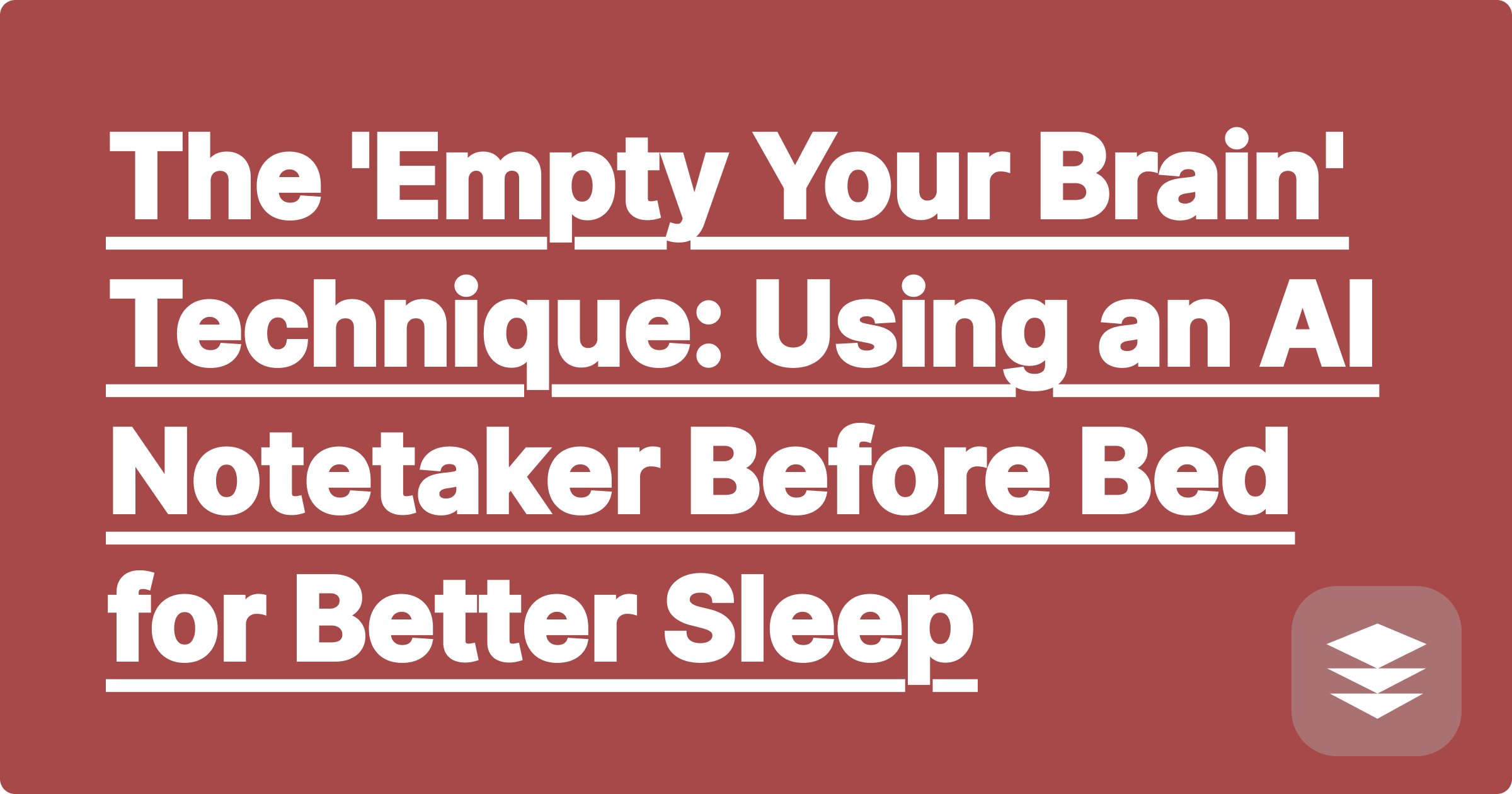
It's midnight before your biggest final of the semester. You've been studying for days. You know you need to sleep to perform well, but when you lie down, your brain refuses to shut off. A chaotic storm of formulas, definitions, anxieties, and last-minute reminders swirls in your mind. "Did I review the chapter on torque? What if they ask about Maxwell's equations? I need to remember to bring two pencils." This racing mind is a major cause of pre-exam insomnia.
There's a psychological reason for this. The "Zeigarnik Effect" describes our brain's tendency to remember uncompleted or interrupted tasks better than completed tasks. All those "I still need to review..." thoughts are open loops that your brain refuses to close, keeping you in a state of alert anxiety. To sleep, you need to convince your brain that these tasks are handled. You need to perform a brain dump.
A brain dump is a simple but incredibly powerful technique: you get all of your swirling thoughts, tasks, and worries out of your head and onto an external, trusted system. The act of writing it down signals to your brain that the information is safely captured, allowing it to finally relax and let go. And an AI is the perfect tool for this.
This ritual, done 30 minutes before bed, can dramatically improve your ability to how to sleep better before exam.
[Image: A "before and after" picture. "Before" shows a student in bed, looking stressed with a cloud of chaotic thoughts above their head. "After" shows the student sleeping peacefully, with those same thoughts now neatly organized inside a GPAI app icon on their nightstand. Alt-text: A visual explaining the brain dump technique for better sleep before an exam.]
Seeing your chaotic thoughts organized into a simple, actionable list is incredibly calming. Your brain, now trusting that everything is captured and has a plan, can finally downshift from "panic mode" to "sleep mode." You can close your laptop knowing that your cheatsheet will be there in the morning for a final, focused review. If you need to solve one last problem to feel calm, the GPAI Solver is ready.
A: Yes. The brain dump technique is a well-established cognitive behavioral therapy (CBT) technique for anxiety and insomnia. The act of externalizing thoughts reduces the "cognitive load" on your working memory, which is a prerequisite for falling asleep.
A: You can use paper, but an AI has advantages. It's faster to type, you can't lose it, and the "automatic organization" step is a form of magic that a paper notebook can't replicate. Seeing the AI instantly bring order to your chaos provides an extra layer of psychological relief.
The best thing you can do in the last 8 hours before an exam is not to cram more information into your brain, but to get a full night of restorative sleep. Sleep consolidates memory and ensures your brain is working at peak efficiency on test day. By using the "Empty Your Brain" technique with an AI notetaker, you're not just organizing your thoughts—you're enabling your most powerful study tool: a well-rested mind.
[Get the sleep you need to succeed. Use the GPAI Notetaker to clear your mind before your next exam. Sign up for 100 free credits.]
How to Finally Organize Your Chaotic Google Drive / Dropbox with AI
The Sunk Cost Fallacy of Your Old Study Habits: Why It's Time to Switch to AI
How an AI Notetaker Can Help Students with ADHD Focus
The 'Weekend Warrior' Study Plan: How to Master a Week's Content in 5 Hours
Could you explain that with a sports analogy?': Asking AI for Personalized Metaphors
The Quantified Student: Using AI to Track Your Study Metrics and Find Your Peak Time
How to Reverse-Engineer an 'A+' Paper with an AI Assistant
The 'Empty Your Brain' Technique: Using an AI Notetaker Before Bed for Better Sleep
Using AI to Create 'Ancestor' Cheatsheets: Linking Current Topics to Prerequisites
What's Next for GPAI? A Sneak Peek into Our Vision for the Future of Learning